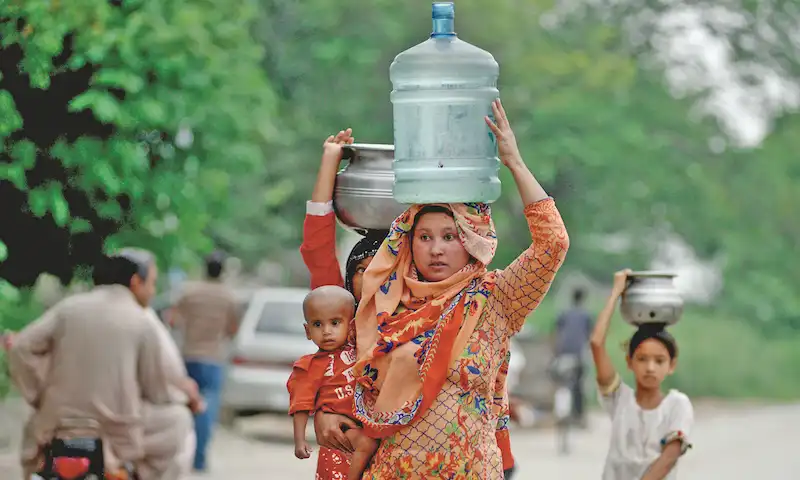- Web Desk
- Feb 19, 2026
Residents fined for wasting water as crisis deepens in twin-cities
-

- Web Desk
- Feb 16, 2025

RAWALPINDI: Amid potential drought conditions and a severe drop in water reserves, the Water and Sanitation Agency (WASA) has declared a water emergency in the city and begun imposing fines on citizens for wasting water.
The twin-cities of Rawalpindi and Islamabad are facing drought conditions with water reserves depleting rapidly due to reduced rainfall while the authorities concerned are taking measures to prevent the crisis from escalating.
As part of the efforts, WASA fined two residents in Rawalpindi on Sunday for ignoring repeated appeals to conserve water.
‘Green wall’ against smog: Punjab to convert 978 acres of land into forests
A WASA spokesperson said that the fines are imposed to enforce conservation measures, warning that stricter penalties will follow in case of non-compliance.
Earlier on Saturday, WASA’s managing director cautioned that if February and March remain dry, the crisis could intensify, as meteorological forecasts indicate below-average rainfall.
The city’s daily water demand is 70 million gallons, but supply has now dropped from 51 million to 46 million gallons per day, sourced from Rawal Dam, Khanpur Dam, and tube wells. The underground water level has plummeted to 700 feet, and with desilting work at Khanpur Dam ongoing, supply disruptions will continue until February 22.
The WASA chief has urged citizens to limit water usage, particularly for washing vehicles, cleaning floors, and watering gardens, as underground reserves have reached a critical level of 850 feet.
He also directed car-wash stations to limit excessive water use.
Moreover, hotels, commercial establishments, and residential areas have also been warned against dumping waste into sewerage lines.
Meanwhile, WASA, the Capital Development Authority (CDA), and the Cantonment Boards have launched a joint desilting operation using heavy machinery to ensure maximum water flow to the twin-cities.
GB Chief Minister announces land reforms; urges NFC revision
The desilting of a 12-kilometer open water channel from Khanpur Dam to Sangjani will continue until February 20, with supply expected to resume by February 23.
Rain expected in coming days
According to the Pakistan Meteorological Department director general, climate change has led to unusually dry weather this season, but he expects conditions to normalize by June or July.
“This is part of a natural cycle that occurs every 7-8 years,” he explained, adding that some parts of the country might receive rainfall around February 18-19.
With water reserves depleting rapidly, authorities continue to urge strict conservation measures to prevent the crisis from escalating.




